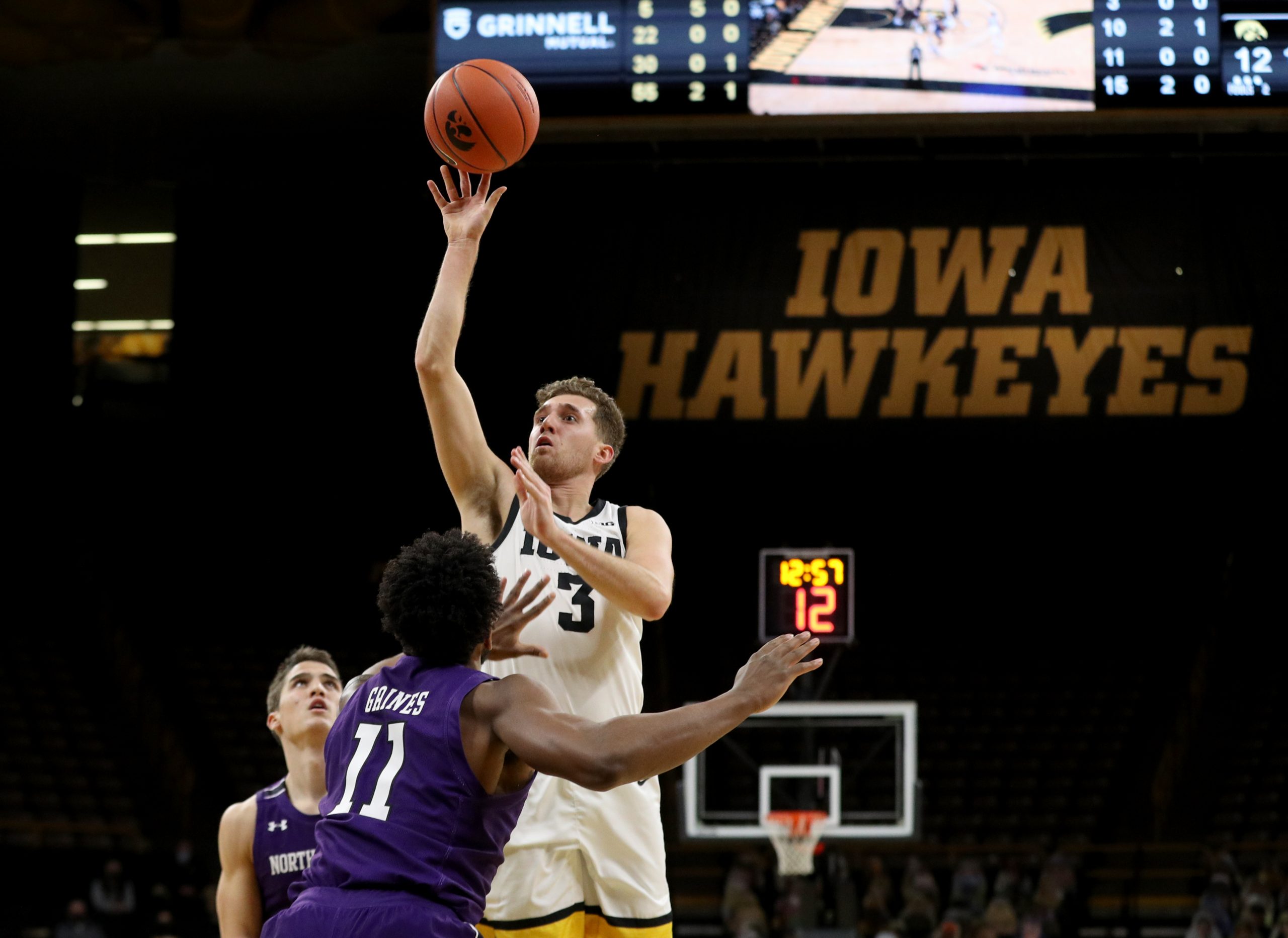NCAA should be subjected to antitrust laws just like any other business
By Pat Harty
IOWA CITY, Iowa – In 2010, the Iowa men’s basketball program violated NCAA Bylaw 13.01.04 for allowing two recruits to meet with celebrities Ashton Kutcher and Demi Moore, and with two former Iowa players.
The NCAA considered Kutcher, Moore and the two former players – Reggie Evans and Dean Oliver – as representatives of the institution’s athletics interest, a violation of the aforementioned bylaw.
Both meetings with recruits Josh Oglesby and Marcus Paige took place prior to an Iowa football game.
Iowa officials concurred, writing the encounters “were the result of sloppy management by our basketball staff” in a letter to the NCAA.
The NCAA initially ruled the players ineligible to compete at Iowa, but eventually softened its stand, calling the violations secondary in nature.
Oglesby would go on to play for the Hawkeyes, while Paige signed with North Carolina.
I bring this up now as a reminder of just how much power and control the NCAA wields as the governing body of college sports.
But now some of that power and influence is being stripped away as The Supreme Court of the United States unanimously affirmed a ruling Monday that provides for an incremental increase in how college athletes can be compensated and also opens the door for future legal challenges that could take away even more power from the NCAA business model.
Justice Neil Gorsuch wrote the court’s opinion, which upheld a district court judge’s decision that the NCAA was violating antitrust law by placing limits on the education-related benefits that schools can provide to athletes. The decision now allows schools to provide their student-athletes with unlimited compensation as long as it is connected to their education.
This decision now clears the way for Name, Image and Likeness legislation perhaps as soon as this week. Reports say the legislation could happen by June 28, which is three days before six states are set to allow those NIL rights outside of NCAA oversight.
Name, Image and Likeness legislation has swept across the nation, getting statehouse approval in over a dozen states, including Nebraska.
Alabama, Florida, Georgia, Mississippi, New Mexico, and Tennessee have all passed state laws that grant college athletes the right to profit off their name, image, and likeness. The new rules are scheduled to go into effect on July 1.
The NCAA has yet to recommend passage of formal Name, Image and Likeness legislation, but that could change on July 1, because if it doesn’t change, college athletics would be in chaos, with some states having Name, Image and Likeness legislation, while other states, including Iowa, would not have it.
“I think it’s going to happen July one,” said attorney Jeffrey Kessler on CNN. “As of July one, a number of state laws already have guaranteed it, and I think the NCAA is going to have to relent and commit all of its schools to now allow this.”
The NCAA makes no sense, sometimes, with where and how it chooses to micro-manage and enforce legislation.
The NCAA never should’ve allowed the Name, Image and Likeness debate to last this long, or for it to be decided on a state-by-state basis.
It would be a disaster if some states had Name, Image and Likeness, while others didn’t because it would create an unfair recruiting advantage.
It’s hard enough for Iowa to recruit nationally, but imagine if the Iowa coaches had to contend with schools that had Name, Image and Likeness without being able to match it.
Monday’s ruling by the Supreme Court sent a strong message that the NCAA is subject to the antitrust laws just like any other business.
And that’s how it should be because the NCAA is big-business as it generated $1.8 billion in revenue in 2019 with a bulk of the money coming from media payments.
The decision to compensate student-athletes for Name, Image and Likeness is long overdue, but it’s coming, perhaps as soon as July 1, because unlike Bylaw 13.01.04, there is nothing the NCAA can do about it.



